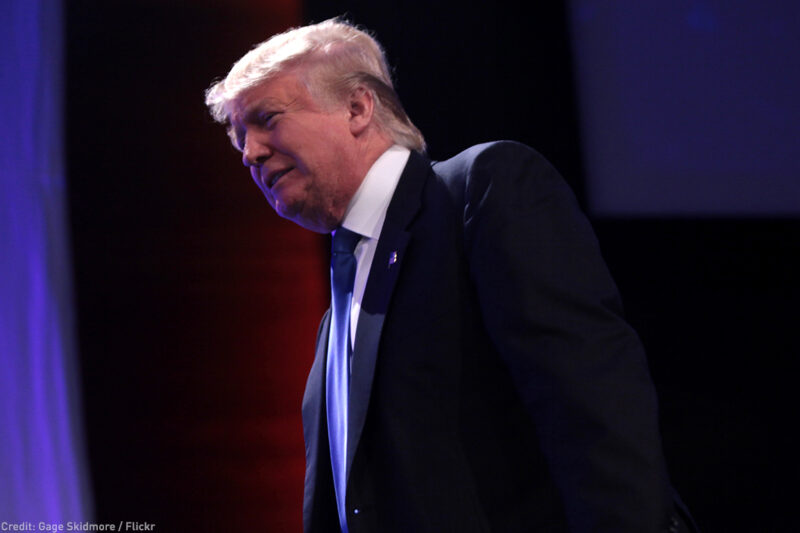
A federal judge in Hawaii on Thursday night to stop the Trump administration from enforcing its irrational interpretation of the Supreme Court’s order that allowed a limited part of the ban on individuals from six Muslim-majority countries to go into effect.
Judge Derrick Watson rejected the government’s effort to prevent grandparents, grandchildren, aunts, uncles, and other close relatives of people in the United States from entering the country, describing the administration’s cramped view as the “antithesis of common sense.” He also directed the government to honor what has been clear from the day the Supreme Court issued its order: that thousands of refugees already have a bona fide relationship with U.S.-based resettlement organizations. This ruling will make an enormous practical difference for tens of thousands of families.
Two federal appeals courts have found that large portions of the current ban on refugees and nationals of six Muslim countries ‚Äî ‚ÄúMuslim Ban 2.0‚Äù ‚Äî were illegal. In the case brought by the ¿œ∞ƒ√≈ø™Ω±Ω·π˚ and its partners, the Fourth Circuit concluded that the ban ‚Äúdrips with religious intolerance, animus, and discrimination.‚Äù On June 26, the Supreme Court granted review of both cases and will hold oral arguments in the fall. We remain confident that the justices will ultimately conclude that any version of the Muslim ban violates our fundamental values.
For now, Judge Watson’s sensible ruling properly tracks the Supreme Court’s strict limitations on the temporary ban before a final ruling is made on its constitutionality. The justices said that it could apply only to those who have “no connection to the United States at all” and could not bar anyone who can “credibly claim a bona fide relationship with a person or entity in the United States.”
But the Trump administration disregarded the limits imposed by the Supreme Court’s ruling. The court specifically noted that a wife or mother-in-law would “clearly” qualify as a close family member. Yet the administration insisted against all reason that other similarly close relationships — a grandparent or aunt, for example — would not qualify. Judge Watson repudiated the government’s bizarre and arbitrary position, pointing out that “grandparents are the epitome of close family members.”
The government’s position on refugee resettlement agencies was no better. The Supreme Court said that the ban cannot be imposed on anyone who has a bona fide relationship with a U.S. entity. The court also explained that such a relationship is “formal, documented, and formed in the ordinary course, rather than for the purpose of evading” the ban. Yet the Trump administration arbitrarily said that some relationships with organizations do not count — specifically relationships with organizations that are preparing to resettle a particular individual or family in the United States. Judge Watson also rejected this made-up exception. These agencies have formal and documented relationships with the refugees for whom they rent apartments, arrange medical care, and prepare other services. As Judge Watson explained: “Bona fide does not get any more bona fide than that.”
The government has decided to appeal Thursday’s ruling and said it will take the issue directly to the Supreme Court. Meanwhile, the government has apparently the first steps toward imposing a possible indefinite ban against people from these or other countries. It is doing a “worldwide review” of which countries do not, in its view, provide sufficient information to screen their nationals for visas and other immigration documents. Under the terms of President Trump’s order, that “review” may end up in a permanent ban against these six, or perhaps other, countries.
For the moment, however, common sense has prevailed — at least for those with grandparents and grandchildren, aunts and nephews, brothers and sisters-in-law subject to the travel ban.

